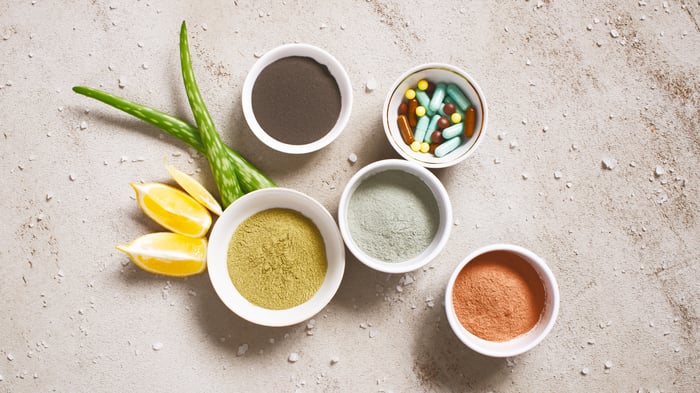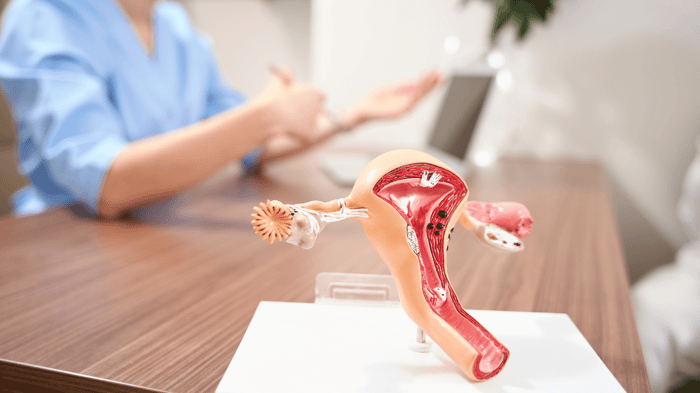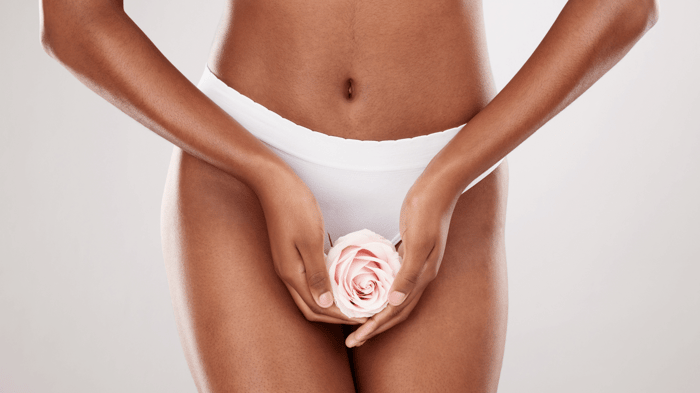Table of Contents
- Menopause and Hormonal Shifts: The Groundwork
- Hormonal Therapies: Potent Relief, Real Risks
- Natural Supplements: Gentle, Holistic, and Sometimes Unpredictable
- Natural vs. Hormonal: A Direct Comparison
- Beyond Pills: Lifestyle and Integrative Approaches
- The Flower Power® Lens: What Really Matters
- Embracing Menopause with Clarity and Choice
- FAQs
Menopause is not an ending but a transition—a season of life that reshapes how the body works and how a woman experiences herself. Yet, for all its naturalness, the symptoms can feel overwhelming: night sweats that rob sleep, hot flashes that strike without warning, mood swings that leave emotions frayed, and intimacy challenges that make confidence harder to hold onto.
When these changes arrive, many women are faced with a decision: turn to hormonal treatments, the medical gold standard for symptom relief, or explore natural supplements, which promise support with fewer risks but less certainty. Neither path is one-size-fits-all. Each comes with its strengths, limitations, and trade-offs.
This isn’t about telling you there is a “right” choice. It’s about breaking down what’s known—about hormones, herbs, and everything in between—so that you can choose what feels aligned with your health, values, and vision of wellness.
Menopause and Hormonal Shifts: The Groundwork
At the heart of menopause lies a biological shift: the gradual decline of estrogen and progesterone, the hormones that orchestrate much of reproductive health. Estrogen influences more than just the menstrual cycle—it plays a role in bone density, cardiovascular health, brain function, and vaginal lubrication. Progesterone balances estrogen and stabilizes cycles, contributing to mood regulation and uterine health.
As menopause approaches, estrogen levels drop sharply, and progesterone disappears almost entirely as ovulation stops. The result is a ripple effect: hot flashes, vaginal dryness, irregular bleeding, sleep disruption, and mood swings. For some, symptoms are barely noticeable. For others, they are disruptive enough to affect relationships, work, and overall quality of life.
These differences aren’t random. Genetics, age, lifestyle, and medical history all shape how menopause unfolds. A woman who enters menopause earlier may experience stronger symptoms. A smoker or someone under chronic stress may feel the effects more intensely. Even ethnicity plays a role—studies show variations in how different cultural groups report symptoms.
Understanding this complexity is key: it explains why some women thrive on hormonal treatments, while others lean toward natural solutions or a blended approach.
Hormonal Therapies: Potent Relief, Real Risks
Hormonal therapy—commonly referred to as Hormone Replacement Therapy (HRT)—aims to do one thing: replace what the body is losing. By supplementing estrogen, sometimes alongside progesterone, HRT restores balance in a way that directly addresses the root cause of most menopausal symptoms.
Why It Works So Well
Because hot flashes, night sweats, and vaginal dryness stem from dropping estrogen levels, adding estrogen back into the system is often the most effective solution. Relief can be quick and comprehensive. Sleep improves. Mood stabilizes. Intimacy becomes comfortable again. Bones are better protected from thinning. For women in premature or surgically induced menopause, HRT can even reduce long-term risks like osteoporosis or heart disease.
How It’s Delivered
Estrogen can come in pills, patches, gels, sprays, or vaginal rings. Progesterone is added if the uterus is intact, to protect against endometrial cancer. The best outcomes often come when HRT is started before age 60 or within 10 years of menopause, under medical supervision and at the lowest effective dose.
Risks That Can’t Be Ignored
But the effectiveness of HRT comes with risks. Depending on the type, dose, and delivery, HRT may increase chances of blood clots, stroke, or breast cancer. These risks are not universal—they vary with personal health history—but they make HRT unsuitable for some women, particularly those with cardiovascular issues or a history of hormone-sensitive cancers.
This dual reality explains the split: HRT is powerful, but not without cost. For women who cannot or prefer not to take it, natural supplements offer a gentler alternative.
Natural Supplements: Gentle, Holistic, and Sometimes Unpredictable
Natural supplements are the quiet counterpoint to HRT: not as strong, not as fast, but often appealing for their lower risk profiles and “plant-based” identity. They range from traditional herbs to concentrated phytoestrogens—plant compounds that mimic estrogen in the body.
Common Herbs in Menopause Care
Black cohosh has long been used for hot flashes and mood swings, though studies show mixed results.
Red clover contains phytoestrogens that may gently mimic estrogen’s effects.
Dong quai and ginseng are staples of traditional Chinese medicine, often used for energy, circulation, and hormonal balance.
Mexican yam is touted for hormone-like compounds, though its benefits in supplements are less clear.
Dietary approaches also matter. Soy, flaxseed, and legumes naturally contain isoflavones, which may modestly support estrogen levels and bone health.
How They Work
Phytoestrogens and isoflavones bind to estrogen receptors in the body, but weakly. Think of them as soft echoes of natural estrogen. In some tissues, they act like estrogen; in others, they block stronger estrogens from binding. This nuanced action explains why results are variable: the same soy isoflavone supplement may reduce hot flashes in one woman but barely move the needle for another.
The Challenge of Regulation
Unlike prescription medications, supplements are loosely regulated. Labels may not always match contents, and purity can vary. Some herbs can interact with medications, affecting liver function, blood clotting, or mood regulation. Quality brands and healthcare guidance are essential here—otherwise “natural” does not necessarily mean “safe.”
Natural vs. Hormonal: A Direct Comparison
When choosing between natural supplements and hormonal therapies, it helps to compare them head-to-head in the areas that matter most.
Hot Flashes and Night Sweats
HRT remains the clear winner. It directly addresses the estrogen drop driving vasomotor symptoms, often reducing hot flashes within weeks. Supplements may help some women, but effects tend to be milder and less consistent.
Mood and Mental Health
Hormonal therapy often improves mood when changes are directly tied to estrogen decline. Natural options like black cohosh or St. John’s Wort may support emotional balance, but evidence is less robust and interactions with other medications are a concern.
Vaginal Dryness and Intimacy
Estrogen therapy—especially vaginal creams or rings—works reliably to restore lubrication and tissue elasticity. Some plant-based supplements show promise for hydrating mucous membranes, but results are gentler and slower.
Long-Term Health
HRT protects bones and may reduce risks of fractures, though at the cost of increased cancer and cardiovascular risk in some women. Supplements like soy isoflavones may support bone density, but not with the same strength or certainty.
The conclusion? Hormonal therapy is strong, fast, and predictable, but not without dangers. Natural supplements are gentler, holistic, and safer for many women, but results vary.
Beyond Pills: Lifestyle and Integrative Approaches
Neither HRT nor natural supplements exist in a vacuum. Lifestyle choices can amplify or undermine their effects.
Regular exercise—especially strength training and aerobic movement—helps with mood, sleep, bone density, and cardiovascular health. A diet rich in calcium, vitamin D, and phytoestrogens (like soy and flax) can provide additional support. Stress management, yoga, and mindfulness can reduce hot flash triggers and stabilize mood.
Even non-hormonal medications like SSRIs or gabapentin are being used to target hot flashes and sleep disturbances. Integrative care—where lifestyle, supplements, and sometimes hormones meet—offers a spectrum of possibilities rather than a binary choice.
The Flower Power® Lens: What Really Matters
At Flower Power®, we believe menopause management should be about more than symptom suppression. It’s about agency—helping women feel informed, confident, and connected to their bodies.
Hormonal therapies are not “bad.” Natural supplements are not “magic.” They are tools, and tools work best when chosen intentionally. For some, HRT is a lifeline. For others, it feels like too big a risk. And for many, natural supplements are not just about avoiding danger—they’re about aligning health choices with a holistic, plant-forward philosophy of care.
This is where products like She Juicy come in. By combining heritage herbs such as slippery elm with modern formulations, they reflect a growing recognition that natural doesn’t have to mean vague, and that intimacy and comfort during menopause deserve as much attention as hot flashes or bone density. It’s about moving past silence and stigma into conversations that prioritize pleasure, agency, and wholeness.
Embracing Menopause with Clarity and Choice
Menopause is not a failure of the body—it is a natural transition that deserves care, not silence. Hormonal therapy and natural supplements are not enemies but alternatives. Each woman’s path will look different, shaped by her symptoms, her health risks, and her values.
What matters most is having the information—and the permission—to choose.
Whether that choice leans toward the precision of HRT, the gentleness of plant-based supplements, or a blend of both, the goal remains the same: to move through menopause not diminished, but empowered.
Because thriving after forty isn’t about fighting time—it’s about rewriting what comfort, vitality, and confidence look like.
FAQs
Are bioidentical hormones safer than synthetic ones?
Bioidentical hormones mimic the molecular structure of natural hormones and may offer fewer side effects for some women. Synthetic versions are effective and FDA-approved but can carry higher risks in certain cases. Both require medical oversight.
Can natural supplements replace HRT entirely?
For some women with mild symptoms, yes. For others with severe hot flashes or vaginal dryness, supplements may not be enough. It depends on individual biology, lifestyle, and comfort with risk.
What’s the biggest risk of using supplements?
The lack of regulation. Choosing low-quality products can mean contamination, inaccurate dosing, or hidden interactions with medications. Always choose transparent brands and consult healthcare providers.
How quickly can I expect relief?
HRT can work within weeks. Supplements may take longer and often provide subtler results. Think gradual support rather than immediate transformation.
Do lifestyle changes really help?
Yes. Exercise, diet, stress reduction, and sleep hygiene all improve menopause symptoms and make any treatment—hormonal or natural—more effective.











